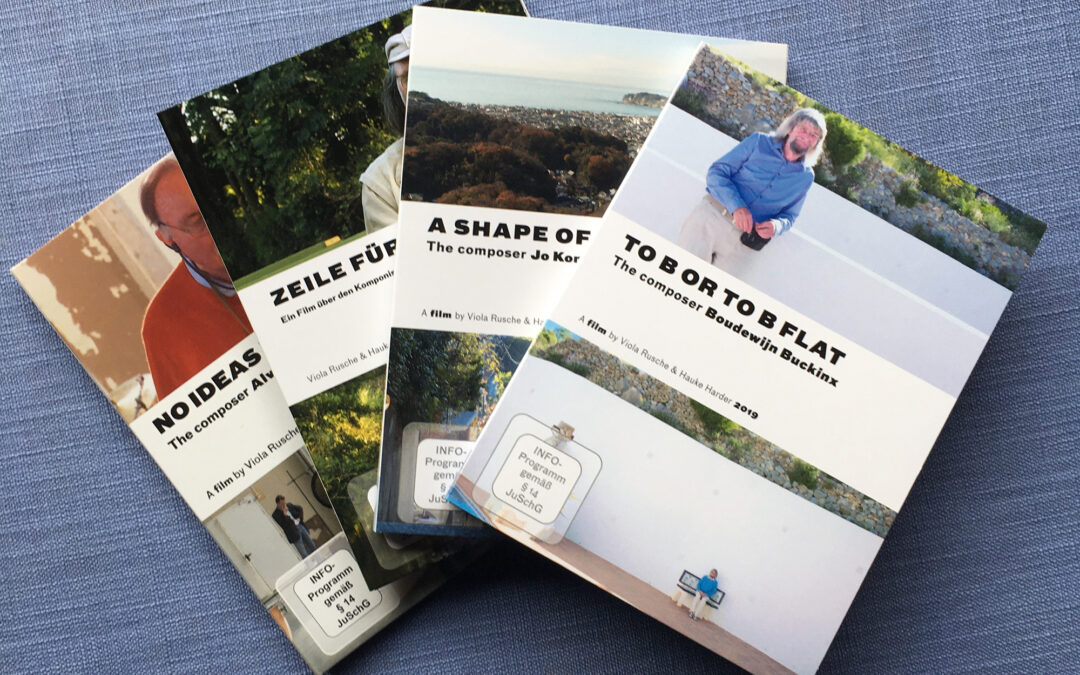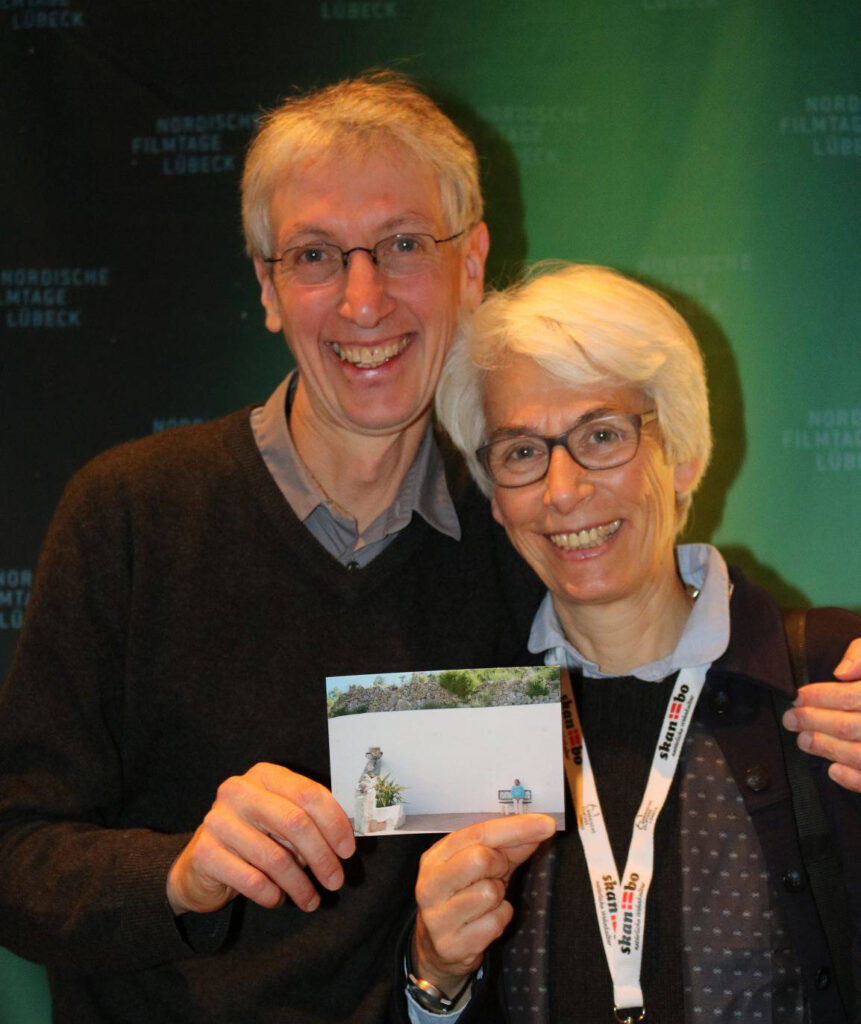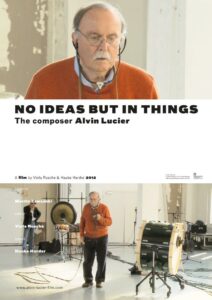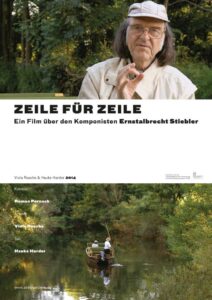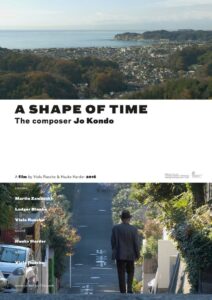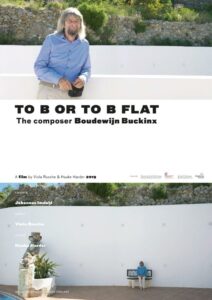Vier Komponisten – vier verschiedene Musikstile und doch haben alle vier Komponisten am Anfang einfache und grundlegende Fragen gestellt, aus denen heraus sie die außerordentliche Klarheit ihrer Werke entwickelt haben. In unseren Filmen versuchen wir eine formale Qualität zu erreichen, die zu dieser Klarheit korrespondiert. Vor allem aber möchten wir die Freude teilen, diese Komponisten und ihr Werk besser kennengelernt zu haben.
Ab sofort sind alle vier Filme auf DVD und Blu-ray erhältlich:
- NO IDEAS BUT IN THINGS – the composer Alvin Lucier, 2012 (nur DVD)
- ZEILE FÜR ZEILE / LINE BY LINE – ein Film über den Komponisten Ernstalbrecht Stiebler (2014)
- A SHAPE OF TIME – the composer Jo Kondo (2016)
- TO B OR TO B FLAT – the composer Boudewijn Buckinx (2019)
Weitere Informationen zu den Filmen und den Komponisten:
Auf den Webseiten können auch die DVDs und Blu-rays bestellt werden (einzeln oder als Set im Schuber).
Filmbesprechungen in infomedia.sh:
Synopsen der Filme:
NO IDEAS BUT IN THINGS – the composer Alvin Lucier
A film by Viola Rusche & Hauke Harder, 2012
“Don’t ask me what I mean, ask me what I’ve made” – inspired by this motto, the documentary accompanies the American composer Alvin Lucier (*1931) on concert travels to The Hague (Netherlands) and Zug (Switzerland). Lucier explains and comments on his œuvre – from his early live electronics performances (MUSIC FOR SOLO PERFORMER,1965 and BIRD AND PERSON DYNING, 1975) up to the premiere of his ensemble piece PANORAMA 2 in 2011. One of Lucier’s key works, I AM SITTING IN A ROOM (1969), is introduced as a central structuring device in the film.
At home in Middletown, Connecticut, Lucier offers rare insights into the beginnings of his pioneering works, his time as a member of the Sonic Arts Union, his relations with John Cage and David Tudor, as well as his teaching practice at Wesleyan University.
NO IDEAS BUT IN THINGS – this line by the American poet William Carlos Williams is one of Lucier’s favorite quotes when he is asked about his artistic attitude. It also reflects the filmmakers’ intention to create a portrait of Lucier that is primarily based on his work.
97 minutes, HD, English
ZEILE FÜR ZEILE
Ein Film über den Komponisten Ernstalbrecht Stiebler
von Viola Rusche & Hauke Harder, 2014/2019
Ein Cellostück
Eine Kahnfahrt
Gedanken zu Musik und Komposition
Die acht Zeilen seines Cellostücks SEQUENZ 2 im Wechsel mit Ernstalbrecht Stieblers Gedanken zu Langsamkeit, Raum, Reduktion, Wiederholung, Resonanz, Lebendigkeit und Emotion
Ein filmisches Kontinuum
A SHAPE OF TIME ׀ The composer Jo Kondo
A film by Viola Rusche & Hauke Harder, 2016
Jo Kondo (*1947) is one of the most interesting composers of contemporary music in Japan. His music is composed intuitively and at the same time it is highly abstract. Without clear directionality and at the same time not without form. For a Japanese audience it sounds “Western” and in the West it is regarded “Japanese”. A music in between categories.
Like Kondo’s music the film is shifting between places and directions: a concert in the Muziekgebouw in Amsterdam, an elaborate sushi bar in Tokyo, a CD-production in a Cologne radio station, the Zuisenji temple in Kondo’s neighborhood in Kamakura.
Kondo wants his music to appear “normal”, without spectacular surface or narrative elements. A concept of “normality” you may also find in the films of Japanese filmmaker Yasujiro Ozu, who – like Kondo – spent most of his life in Kamakura. So it is not by chance that many shots of A SHAPE OF TIME evoke a reference to the aesthetics of Ozu, from the low camera angle up to the subject of daily life.
The film accompanies Kondo to rehearsals, concerts and teaching lessons and witnesses his slow composing process – in clear, static shots.
TO B OR NOT TO B ׀ The composer Boudewijn Buckinx
A film by Viola Rusche & Hauke Harder, 2019
Who gets the idea to write “Nine unfinished symphonies” – one of them perhaps the shortest symphony in music history? Or „1001 sonatas” – each lasting about a minute but in total being one of the longest pieces ever written?
Like a postmodern Erik Satie the Belgium composer Boudewijn Buckinx is using music history as a playing field. The classical music audience is irritated, the avant-gardist wrinkles his nose…
„Daisies in a Meadow“ – that’s how Buckinx described his “1001 Sonatas” for violin and piano. They play a leading role in our film, in the supporting roles the Spanish sun and the Belgian rain. The latter, however, did not show up at the set – just as you always have to be prepared for surprises with Boudewijn Buckinx.
„Why is my music so simple? – Why is my music so complex?“ With a wink, Buckinx gives various answers to these recurring questions.
The portrait of an immensely productive artist who is radically taking his own path.
(nach einer Produktionsnotiz von Viola Rusche & Hauke Harder)

